
13 minute read
Improvements Driven by BC-Wide Committees
In 2020, BC Renal committees led or co-led a number of initiatives that aim to meet the specialized needs of people living with kidney disease.
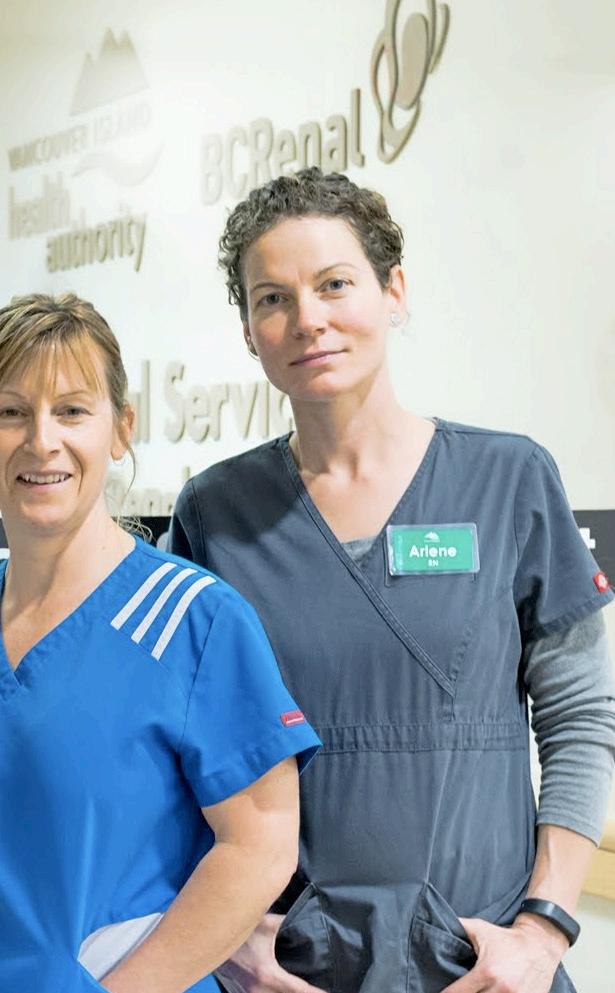
Advertisement
KCC Committee Advances Transplant Initiative and Increases Patient Education and Resources
1.
2.
3.
Top 3 Accomplishments:
Transplant First Project Enters Phase 2: This project focuses on the implementation of enhanced pre-transplant clinical processes, tools and resources (developed in Phase 1) across BC’s Kidney Care Clinics, Regional Transplant Clinics and Provincial Transplant Centres. The goal is to ensure every patient who is a potential kidney transplant candidate is identified, assessed and supported along the path toward transplantation as the treatment of choice, including assistance in finding a living donor. New Provincial Patient Education Webinar Series Launched: This newly established provincial Patient Education Webinar series supplements the patient education provided by BC’s Kidney Care Clinics. The sessions are offered monthly via Zoom and focus on modality choices and transitions. Examples of topics include a general modality choices session, transplant, peritoneal dialysis, home hemodialysis, facility-based hemodialysis and vascular access. In 2020, the number of participants ranged from 30 to 100 depending on the topic. Feedback on the sessions has been very positive. ADPKD Initiative Continues: Our initiative to support patients living with Autosomal Dominant Polycystic Kidney Disease continues to provide patients with valuable, new resources (see ADPKD Advisory Group article in Professional Groups section for details).
Other accomplishments: • Implementation of care team transition guides and patient transition guides • Creation of staff and patient resources for home blood pressure monitoring (in progress) • Implementation of virtual visits in BC’s Kidney Care Clinics (in progress)
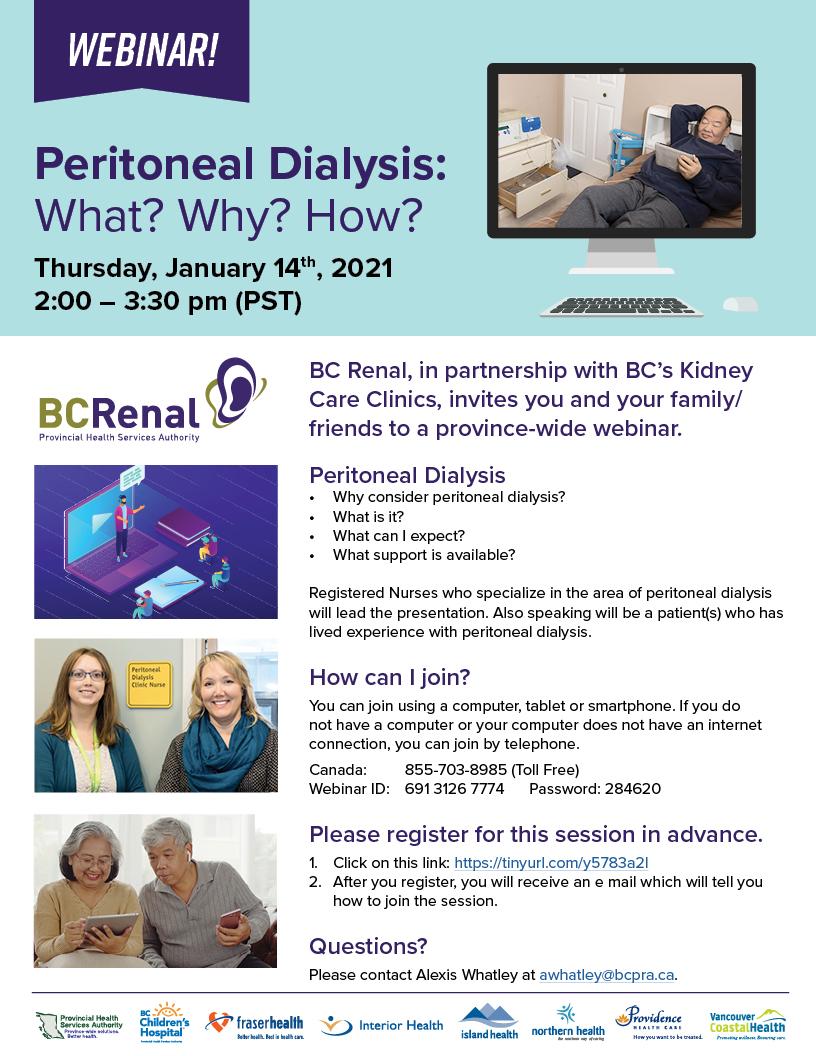
Now that there is a high level of awareness around the value of transplantation, the goal of this next phase of Transplant First is to make sure that our clinics and teams are all structured to ensure that supporting transplantation is a key priority so that as many patients as possible can benefit from this life changing and life saving treatment.
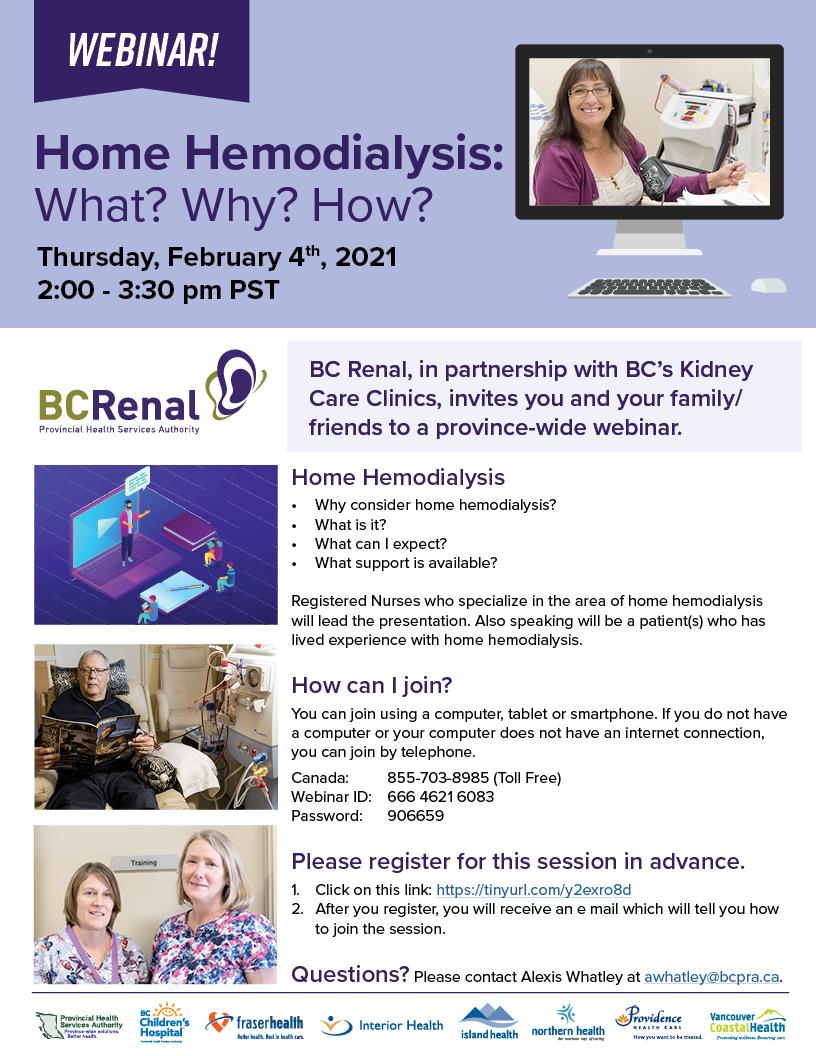
~ Dr. Mike Bevilacqua The Kidney Care Committee (KCC): What does it do? • Develops provincial standards, guidelines, tools and resources • Monitors quality indicators to identify areas for ongoing improvement Groups accountable: • Transplant First • Autosomal Dominant Polycystic Kidney Disease (ADPKD)
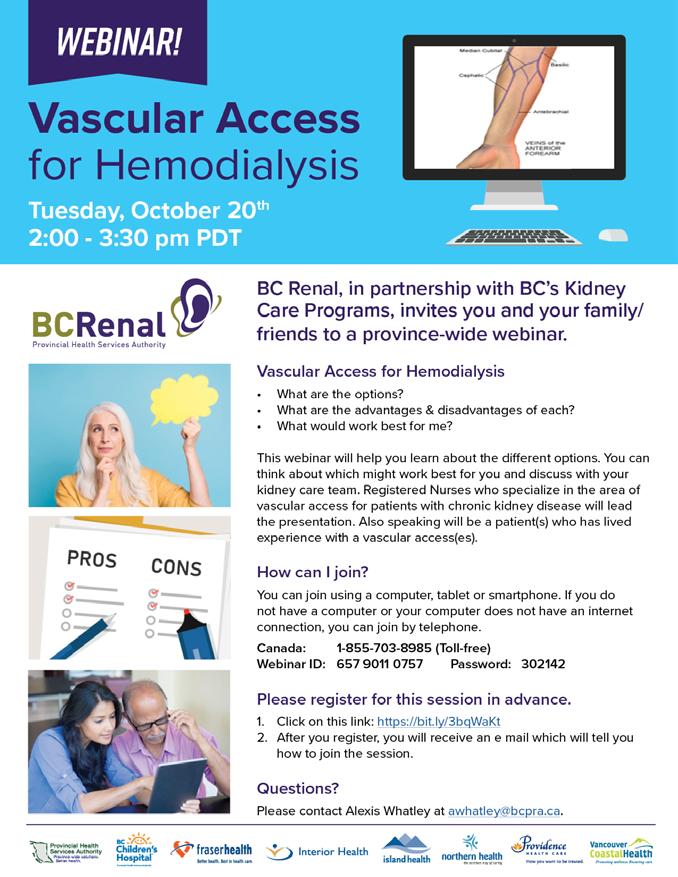
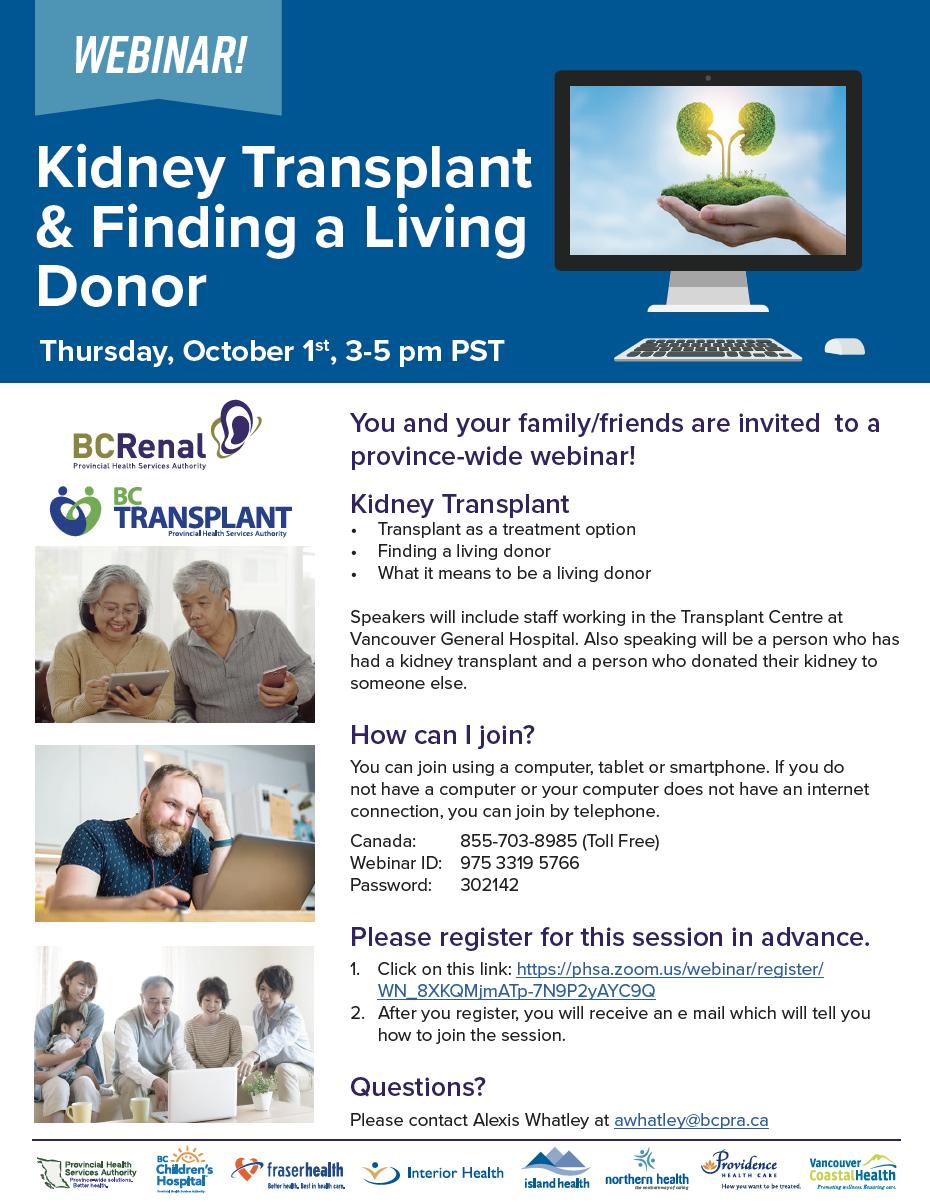
Web info & resources: BCRenal.ca ⊲ Health Info ⊲ Kidney Care Treatments ⊲ Transplant BCRenal.ca ⊲ About ⊲ Events ⊲ Patient Education Webinars BCRenal.ca ⊲ Health Professionals ⊲ Clinical Resources ⊲ Transitions in Kidney Care BCRenal.ca ⊲ Health Info ⊲ Managing My Care ⊲ Transitions in Kidney Care
Patients with GN to be Supported with New Initiative, Improved Drug Options
Identifies, implements and evaluates health care programs and health policy initiatives for patients with glomerulonephritis Ensures communication of such activities to relevant stakeholders
1.
2.
3.
Top 3 Accomplishments:
GN Atlas Undergoes Enhancements: This past year, the GN Committee has been working to enhance its provincial glomerulonephritis atlas, the first-ever atlas that describes the patterns of GN disease in BC. In subsequent years, the committee plans to publish the atlas and start providing annual updates, including an indepth coverage of one GN sub-disease per year. Strategy for Rituximab-like Medications Outlined: Rituximab is one of the most expensive medications required by a subset of people living with GN. However, several biosimilar drugs are expected to enter the Canadian market in the near future. The GN Committee has been proactively conducting a review and comparison of these medications, and proposed a multi-prong strategy for these upcoming drugs that focuses on providing best-practice and evidence-based care, balanced with financial responsibility. Initiative to Support People Living with GN Begins: The GN Committee recently launched a ground-breaking patient engagement initiative to better understand the needs of people living with GN in BC and develop a corresponding support strategy. To date, two patient focus groups and several one-on-one interviews with patients have been conducted. Once the results are analyzed in early 2021, a strategy to support people living with GN in BC will be outlined.
Other Accomplishments: Developed guidelines for pneumocystis pneumonia (PCP) prophylaxis in GN patients treated with immunosuppressant medications Developed a rituximab funding policy for patients with membranous nephropathy (MN) Looking back to 2019, launched the BC Renal/UBC fellowship program in GN, with the first-ever GN fellow from Ireland starting a 2-year program
As care providers, we often tend to focus on the disease aspect of the patient journey. However, we must look at our patients more holistically and try to help them in a broader context of their everyday lives. This is especially true for people with rare kidney diseases such as glomerulonephritis, particularly those who may live in rural communities with limited access to care, or who may not know anyone else with GN and so feel socially isolated with their disease. Understanding and addressing the needs of these patients beyond the infrequent clinical touch points may help them to achieve a better quality of life, and empower clinicians to provide a more whole-personfocused care.
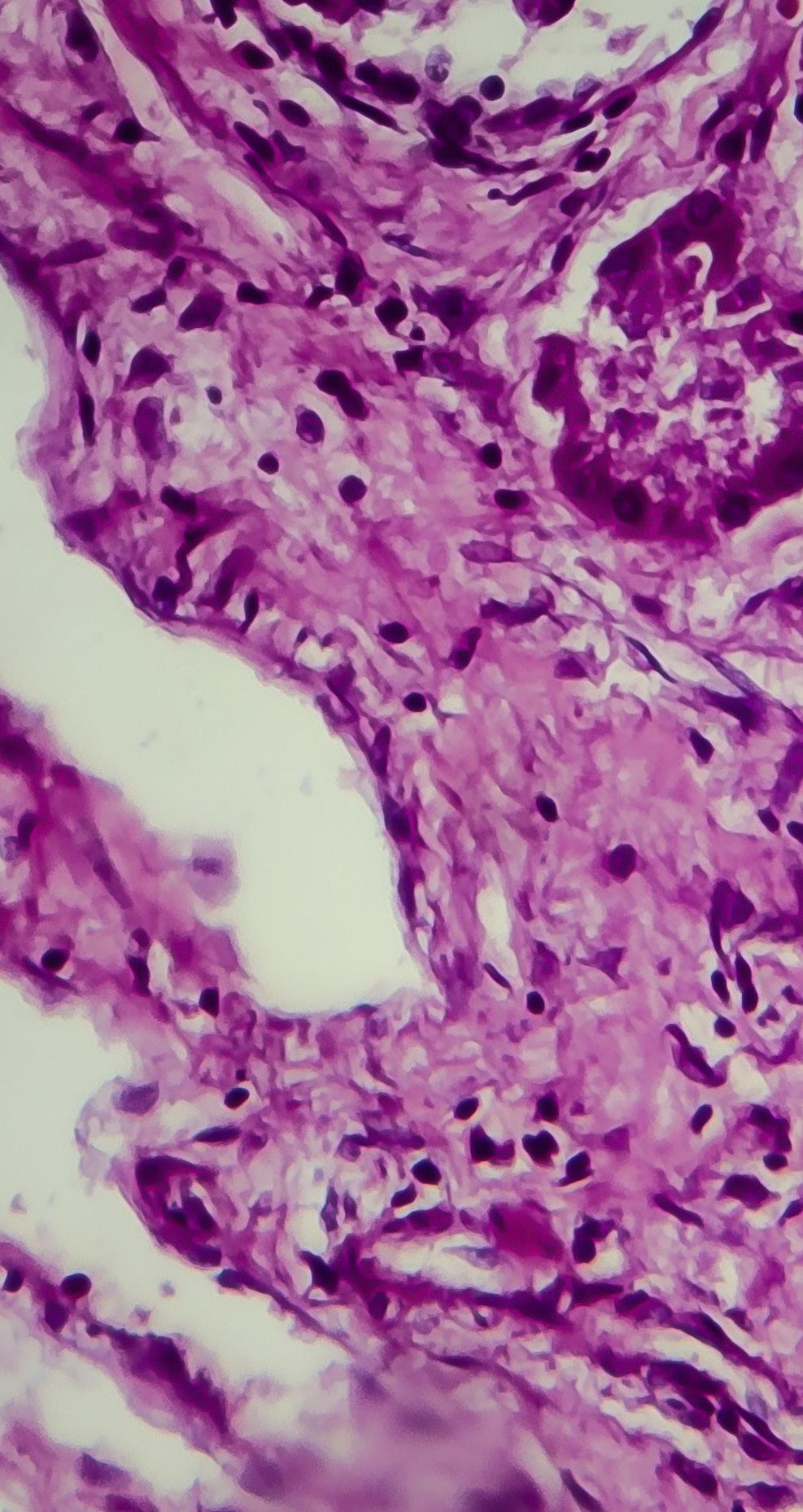
~ Dr. Sean Barbour
Web info & resources: BCRenal.ca ⊲ Health Professionals ⊲ Clinical Resources ⊲ Glomerulonephritis
HHD Committee Creates New Videos and Translated Materials, and Works to Expedite Home Dialysis for Acute Patients
1.
2.
3.
Top 3 Accomplishments:
Patient Home Hemodialysis Videos Produced: The committee has developed short video vignettes of patients sharing their experiences about training, support, and quality of life aspects of home hemodialysis. The videos are designed to be helpful to patients as they choose an appropriate modality for their lifestyle. Home Hemodialysis Training Materials Translated: This past year the HHD patient workbook was translated into Chinese and Punjabi to support training and follow up. Prioritizing the translation of this resource was important as home hemodialysis is the modality of choice of 12.4% Asian Oriental/Chinese and 4.8% of South Asian/Asian Indian patients in British Columbia. Project to Expedite Home Dialysis Among Acute Hemodialysis Patients Continues: Known as the CRASH project, its goal is to promote home dialysis among acute hemodialysis patients through an expedited assessment, structured educational program, and early exposure to home dialysis options. These interventions address a gap in the education of patients who are appropriate candidates for home hemodialysis or home-based peritoneal dialysis but have been unable to receive training in a kidney care clinic. This project has been extended as a result of the pandemic.
Home Hemodialysis Committee: What Does it Do?
Helps coordinate the delivery of an independent dialysis program throughout the province, ensuring high quality, safe and equitable patient care Provides direction to local programs and self-care Leads development of provincial resources, tools and guidelines
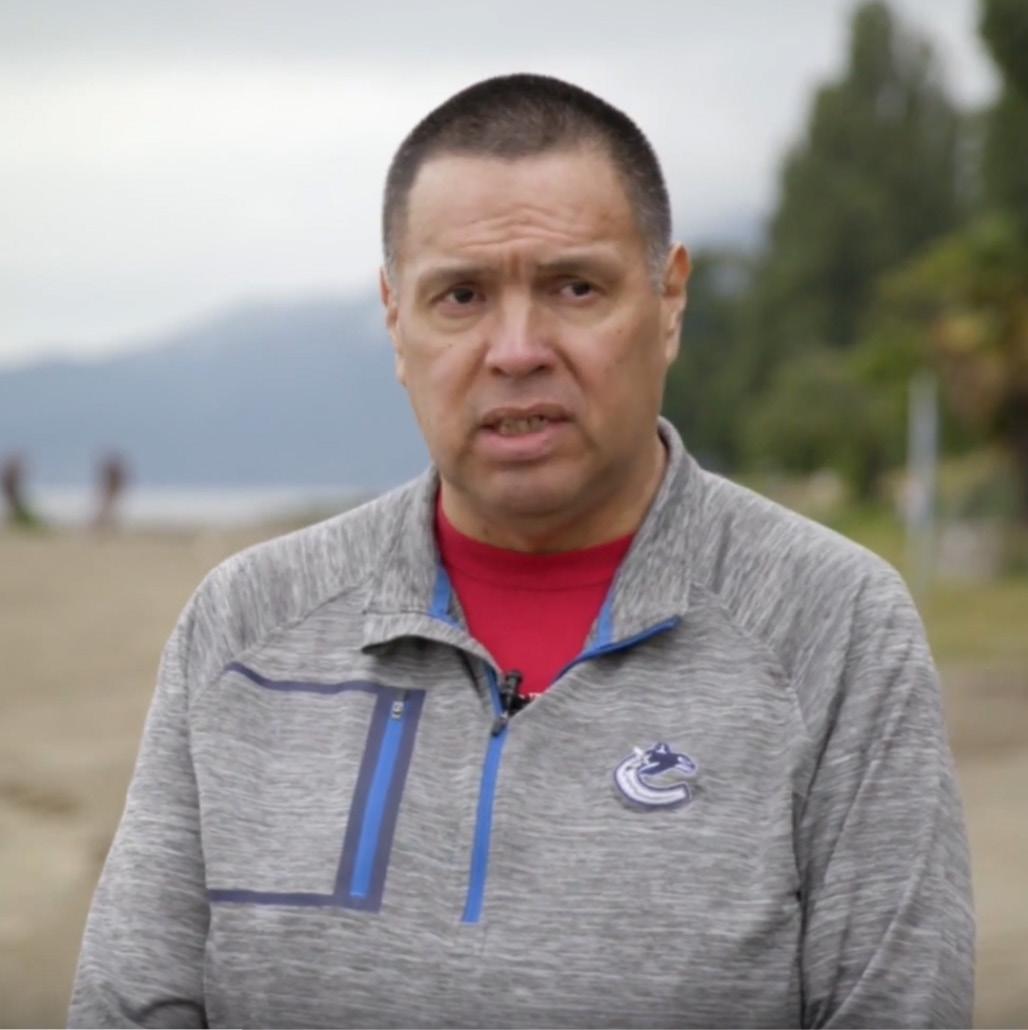
Scenes from Home HD Patient Videos The videos will give people the chance to see the potential for their own success due to, and through, the successes of other patients. I think they will go a long way to help people overcome their fears and concerns and take the next step to self-care home dialysis.
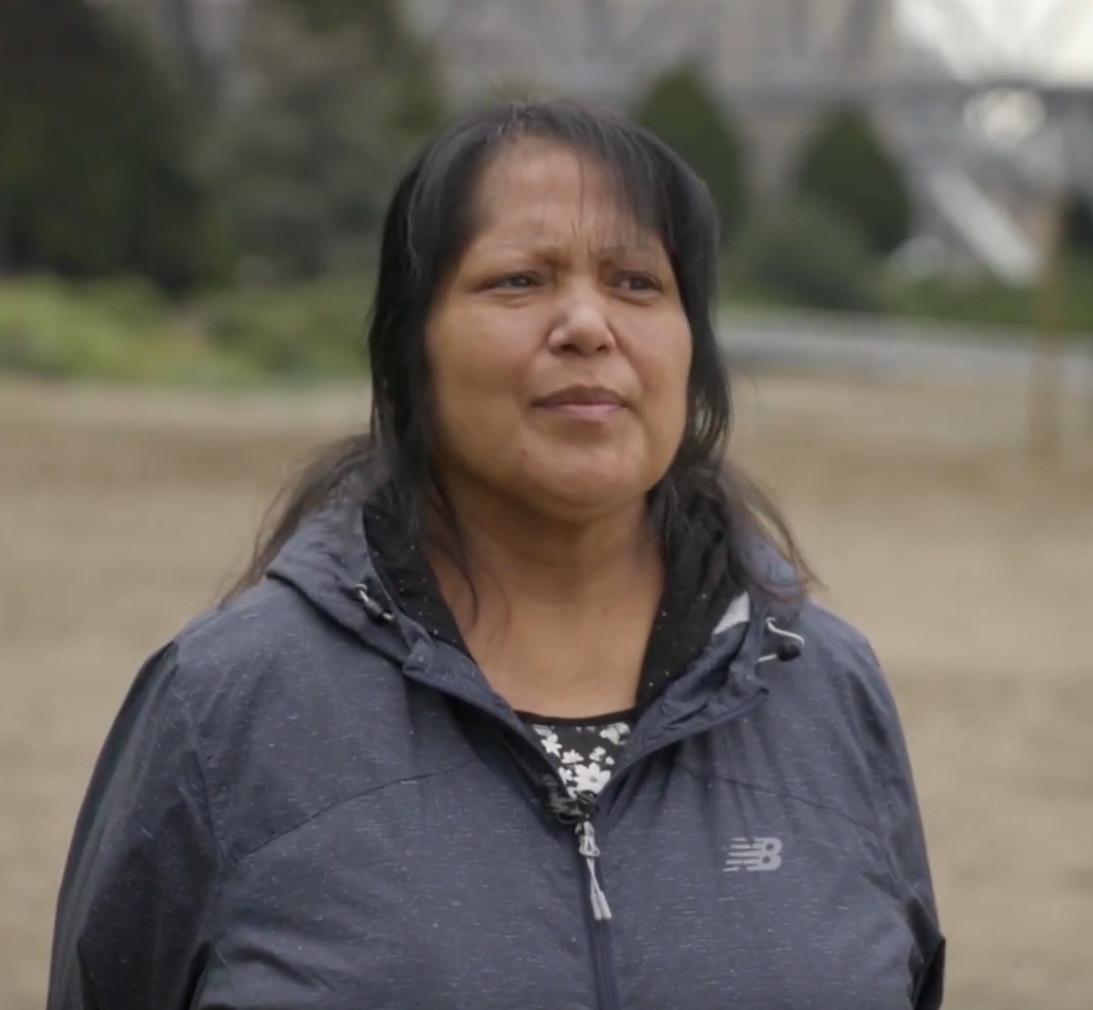
~ Dr. Michael Copland
Web info & resources: BCRenal.ca ⊲ Health Info ⊲ Kidney Care Treatments ⊲ Home Hemodialysis BCRenal.ca ⊲ Health Professionals ⊲ Clinical Resources ⊲ Home Hemodialysis

PD Committee Improves Vendor Services and Creates New Resources for Patients
Peritoneal Dialysis Committee: What does it do?
Develops best practice strategies Uses a continuous quality improvement approach to care
1.
2.
3.
Top 3 Accomplishments:
Peritoneal Dialysis Patient Service Improvement Project Completed: This project was developed as a result of an increase in frequency and complexity of vendor service challenges over the past few years. “We wanted to provide PD patients in BC with high quality kidney services and treatment in a safe and timely manner to enhance their quality of life and improve their health outcomes,” explains PD Committee member Sue Saunders. As a result of this project, BC Renal has seen a significant improvement in issues management and a decreased workload among PD nurses and BC Renal staff. New PD Resources Created: The new repertoire of resources includes e-learning modules, procedural videos, and complication management care paths to support patients and the health care team in rural remote communities. Transition Guides Shared With the Broader Kidney Community: This year the PD Committee published a new manuscript, “Systematic Evaluation of Provincial Initiative to Improve Transition to Home Dialysis Therapies” in the Canadian Journal of Kidney Health and Disease. The manuscript is based on the development and implementation of care team and patient transition guides for PD.
Re-designed PD Modules for patients
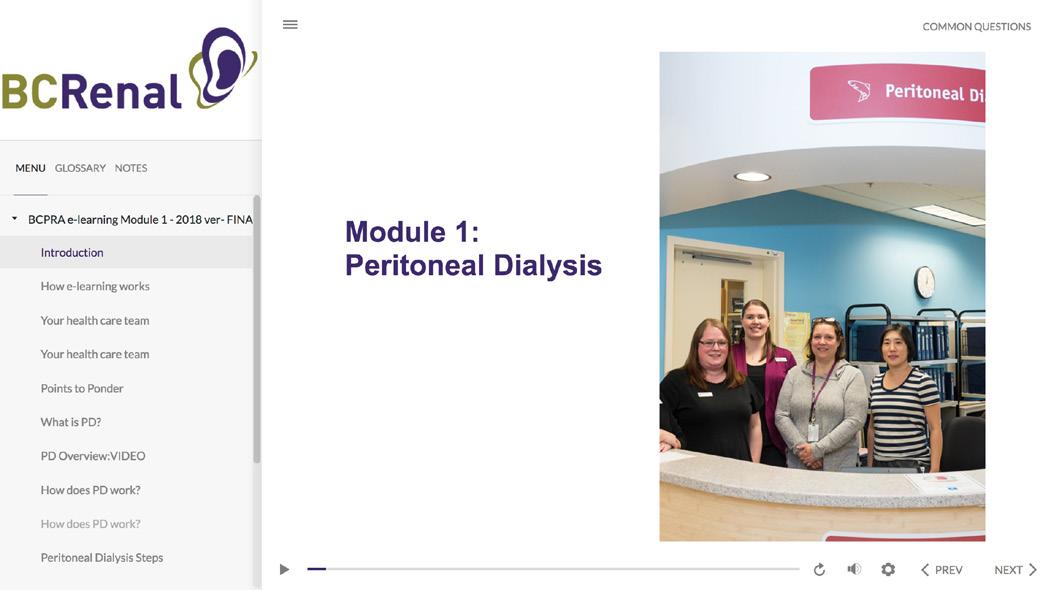
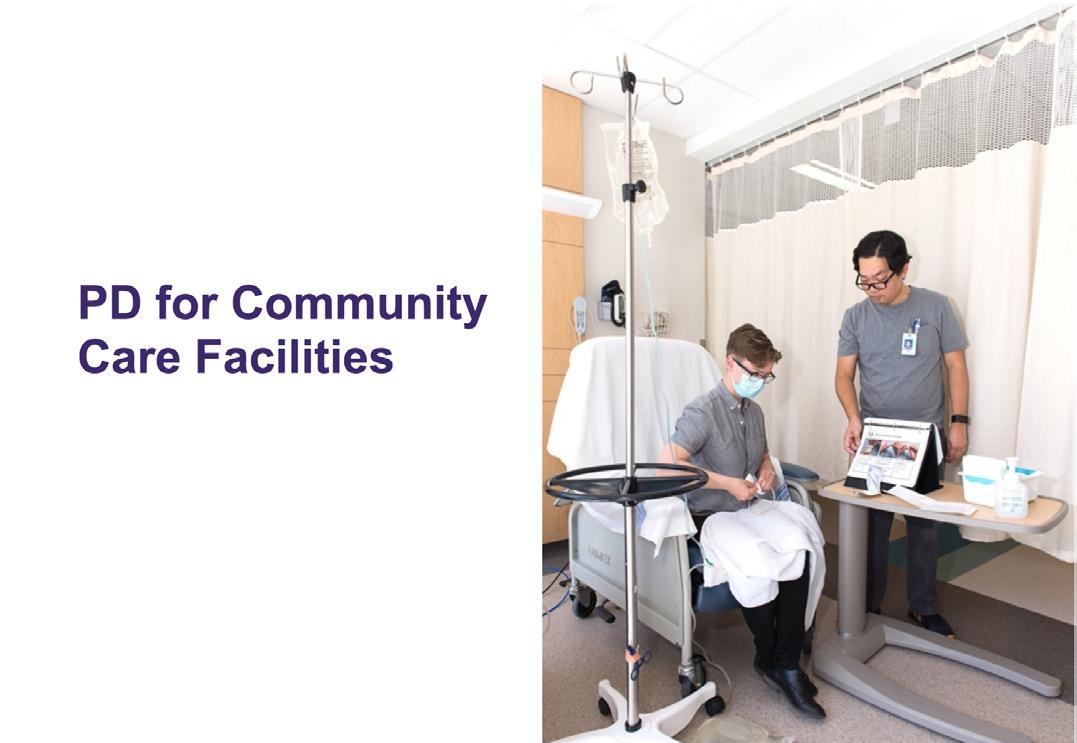
Re-designed training videos for rural/remote clinics
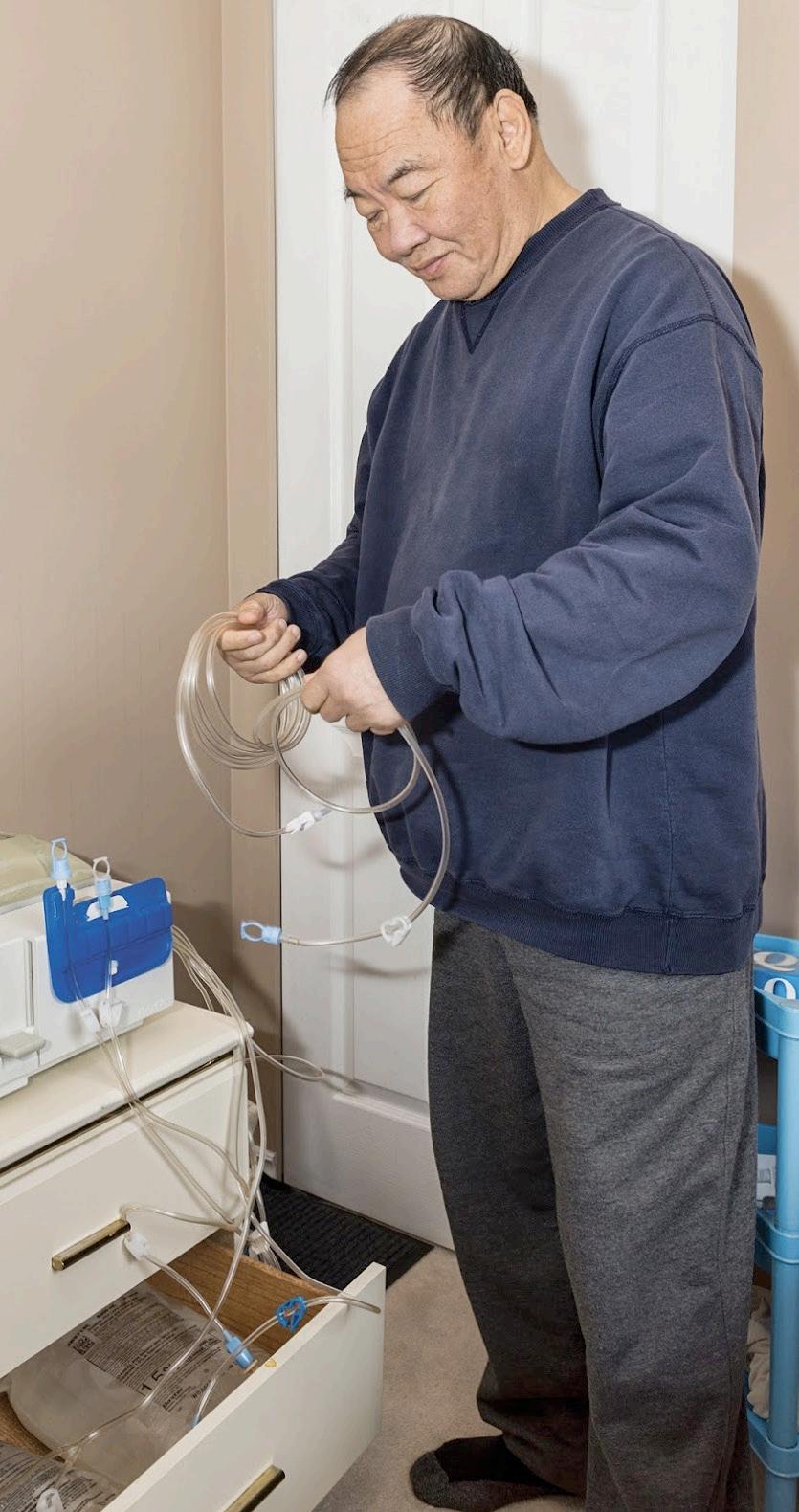
Home dialysis is a huge and daunting responsibility. Caregivers and patients need their healthcare team to evaluate and change practices to improve their quality of care and their quality of life. The peritoneal dialysis community in BC is a small group of dedicated nurses, dietitians, pharmacists, social workers and physicians working with very committed leadership at BC Renal.
~ Dr. Suneet Singh, Provincial PD Medical Director
Web info & resources: BCRenal.ca ⊲ Health Professionals ⊲ Clinical Resources ⊲ Peritoneal Dialysis BCRenal.ca ⊲ Health Professionals ⊲ Clinical Resources ⊲ Transitions in Kidney Care
HD Committee Develops Hemodialysisspecific Guidelines and Patient Resources for Infections, Including COVID-19
1.
2.
3.
Top 3 Accomplishments:
Hemodialysis-Specific Infection Guidelines and Patient Resources Created: In partnership with infection control practitioners, the HD Committee developed provincial hemodialysis-specific infection guidelines and patient resources for COVID-19, MRSA, VRE, Hepatitis B, Hepatitis C, HIV, CPO bacterial infections, and Clostridioides difficile. Implementation of these guidelines within BC’s hemodialysis programs will help with prevention, containment and management of these diseases. COVID-19 Screening Introduced at All BC HD Units: A standardized COVID-19 screening questionnaire was developed and implemented in all BC HD units in April 2020. Every patient is screened for COVID-19 symptoms at every hemodialysis treatment session. Screening data is entered into PROMIS (BC’s kidney and transplant patient information system) and trends are analyzed in combination with laboratory results. Management of Complications in HD Guideline is Outlined: The Renal Educators Group completed the development of a provincial guideline on the Nursing Management of Complications During Hemodialysis. Upon being assessed by a small group of reviewers (e.g., nephrologists and pharmacists) and finalized by the HD Committee, the guideline is anticipated to be rolled out in 2021.
Other accomplishments: Established a process for responding to critical incidents (e.g., technical issues with dialyzers) which may have provincial applicability
Updated several hemodialysis and vascular access guidelines, which are posted on the BC Renal website Developing a Dialysis Workforce strategy and supporting documents

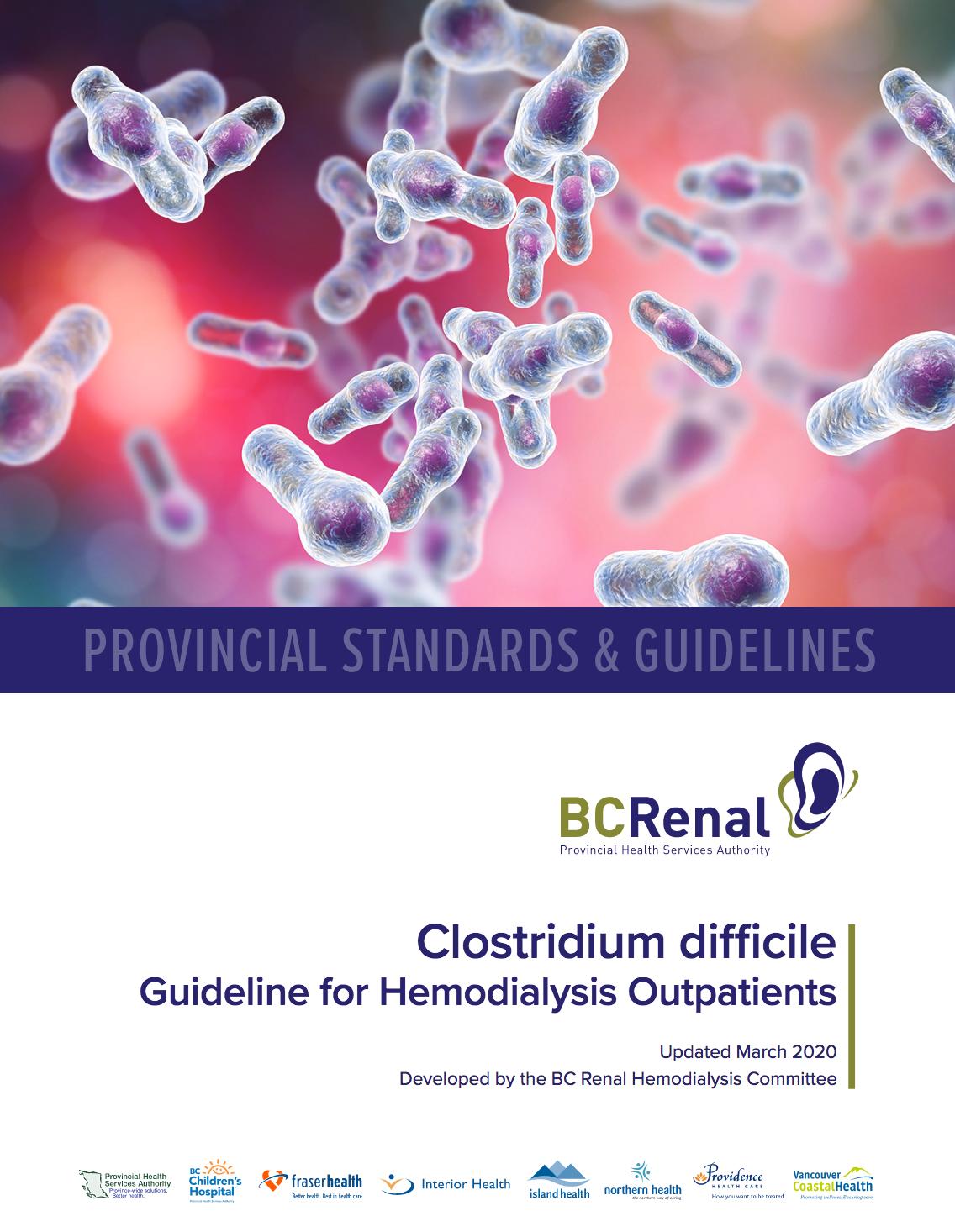
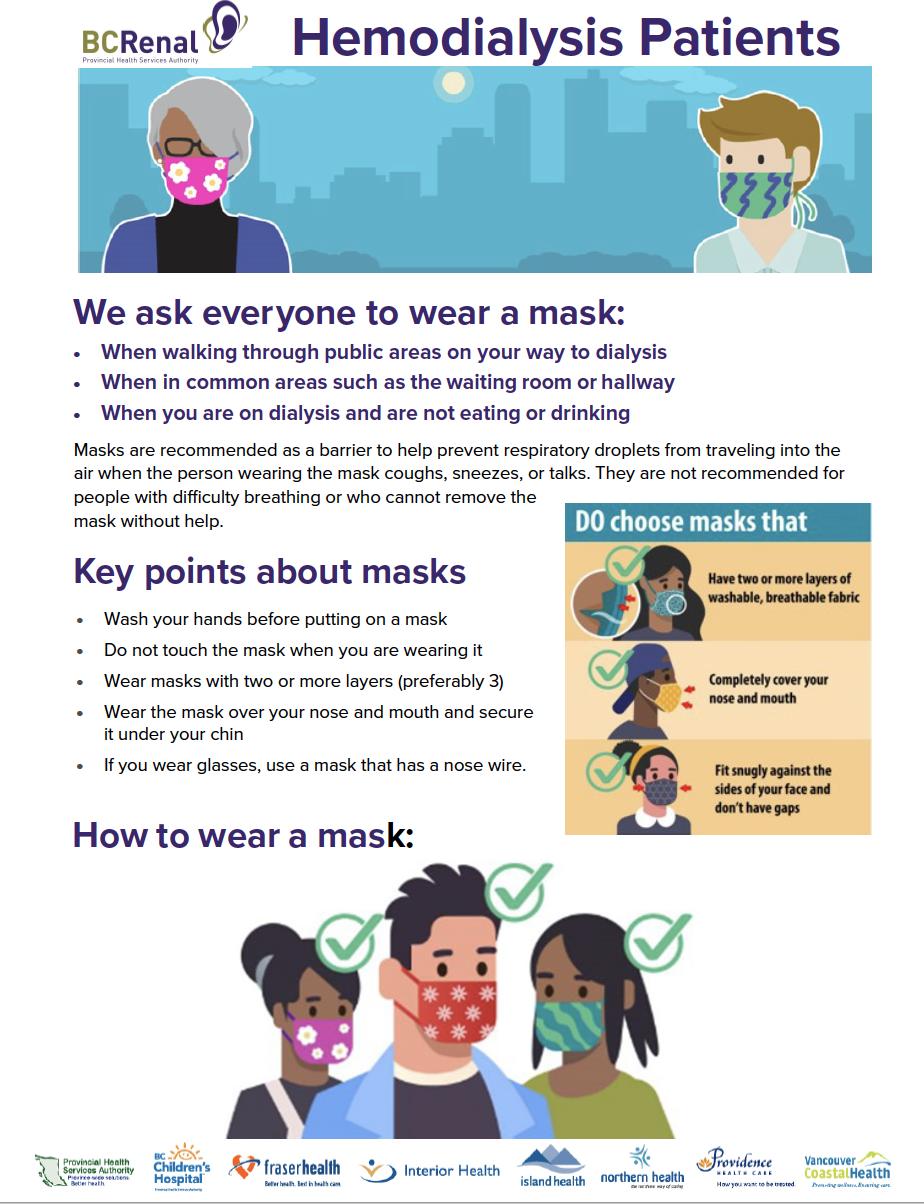
The development of the provincial Management of Complications in HD Guideline by the Renal Educators Group has been a very positive experience as we have worked together to review the literature and current practices and collectively make recommendations that will directly benefit our patients. We will continue this collaborative work in 2021 as we work on our roll-out plan.
~ Jun Valentin, Chair, REG and Clinical Nurse Educator, HD, Fraser Health
Hemodialysis (HD) Committee: What does it do?
Creates procedures, protocols, and guidelines that support high-quality hemodialysis care in 41 hospital and community hemodialysis units across BC Groups accountable: • Renal Educators Group (REG) • Vascular Access Educators Group (VAEG) • HD Technical Group.
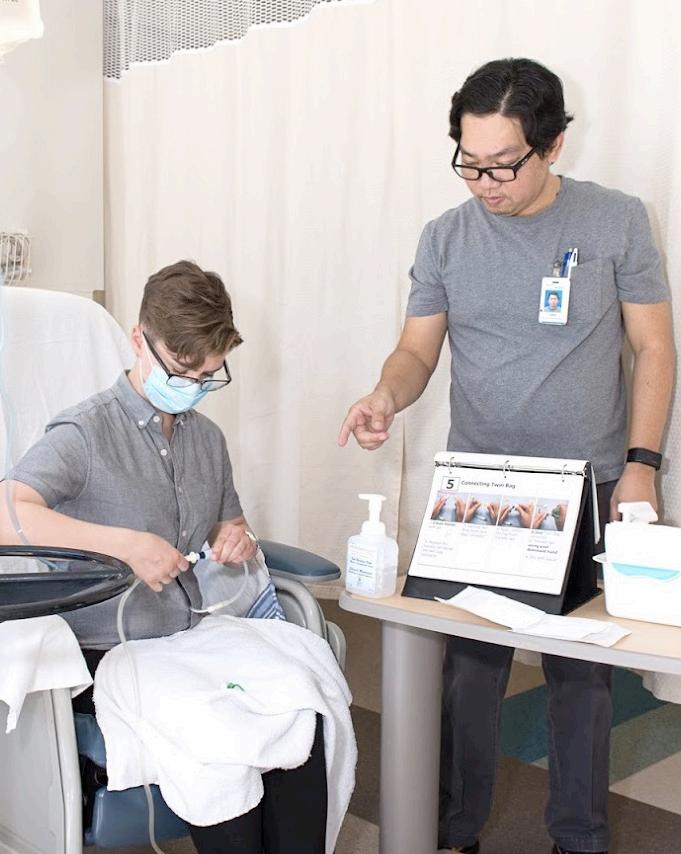
Web info & resources: BCRenal.ca ⊲ Health Professionals ⊲ Clinical Resources ⊲ Hemodialysis BCRenal.ca ⊲ Health Info ⊲ Kidney Care Treatments ⊲ Hemodialysis BCRenal.ca ⊲ Health Professionals ⊲ Clinical Resources ⊲ Novel coronavirus (COVID-19)
Palliative Care Committee Creates Framework for COVID-Related Guidelines, and Strategy and Resources for Integrated Care
1.
2.
3.
Top 3 Accomplishments:
Framework to Manage Dialysis Resources During COVID-19 is Rapidly Implemented: As the COVID-19 pandemic began, the team mobilized quickly to create a Dialysis Resource Optimization Framework: Guidelines for Emergency Triage. This framework is an essential tool for guiding the distribution of resources and staffing to support ethical and patient-centred decision-making for kidney health care programs, which could be used within the BC Renal network, if needed. New Publication Highlights 15 Years of Palliative Efforts at BC Renal: A manuscript, Advancing Palliative Care in Patients with CKD: From Ideas to Practice, captures a 15-year journey at BC Renal to systematically identify patients for advance care planning, address symptom assessment and management and provide care of the dying patient. The paper, by Helen Chiu, Dr. Gaylene Hargrove, Dr. Adeera Levin et al., was published in the American Journal of Kidney Health and Disease. Integrated Palliative Nephrology Project Implemented: Kidney care providers and patients identified a need to develop and implement a provincial strategy to effectively integrate a palliative approach for all chronic kidney disease patients in BC, including the development of resources for staff and patients. The patient and staff informational resources have been a valuable and essential tool for those who are thinking about stopping dialysis or are transitioning to end-of-life.
Other Accomplishments: Poster presentation at BC Kidney Days - A Proposed Ethical Framework: Balancing the Needs of Maintenance and Short-term Patients During a Pandemic Our Integrated Palliative Nephrology Project working group has been nothing short of outstanding. Members generously gave their time and energy, listened to and learned from each other, and were honest and sincere in providing feedback. I'm also very grateful for our admin team who kept us on track. Working on the project has enabled me to grow as a kidney clinician and has throughout their illness journey.
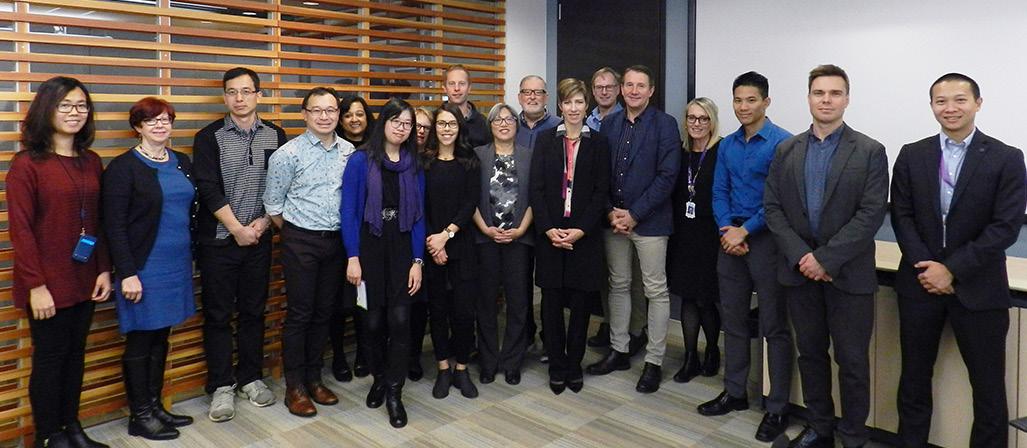
The Palliative Care Committee: What does it do?
Aims to improve access to high quality, integrated palliative and ~ Dr. Gaylene Hargrove, Chair, Palliative Care
end-of-life care for patients living Committee motivated me to work even harder to advocate for the best quality of life possible for my patients
with chronic kidney disease.
Web info & resources: BCRenal.ca ⊲ Health Professionals ⊲ Clinical Resources ⊲ Palliative Care BCRenal.ca ⊲ Health Info ⊲ Managing My Care ⊲ Palliative Care
Pharmacy & Formulary Committee Secures Cost-Saving Contracts, Funds Tolvaptan and Manages Drug Shortages

1.
2.
3.
Top 3 Accomplishments:
Drug Contracts Yield Substantial Savings: The Pharmacy & Formulary Committee secured contracts for tolvaptan, sevelamer carbonate, tacrolimus and rituximab. Collectively, these agreements will yield an ongoing savings of approximately $4.5 million each year. Funding for Key ADPKD Drug Approved: Tolvaptan is a drug used to treat ADPKD, but it previously was not available to all British Columbians. In January 2020, BC Renal began funding tolvaptan, making BC the first province in Canada to provide comprehensive public funding for this medication. Patient Drug Access Sustained Throughout COVID: The Pharmacy & Formulary Committee has been able to manage drug shortages during the COVID-19 pandemic, ensuring that no patient goes without medication for kidney disease.
These contracts enable us to ensure a stable, safe supply of medication at the best possible price, allowing us to fund as many drugs as possible. In the coming year, we plan to establish more contracts, review new, first-in-class medications, and explore reconciling allergies across patient records.
~ Dan Martinusen, Chair, Pharmacy & Formulary Committee
Pharmacy & Formulary Committee: What does it do?
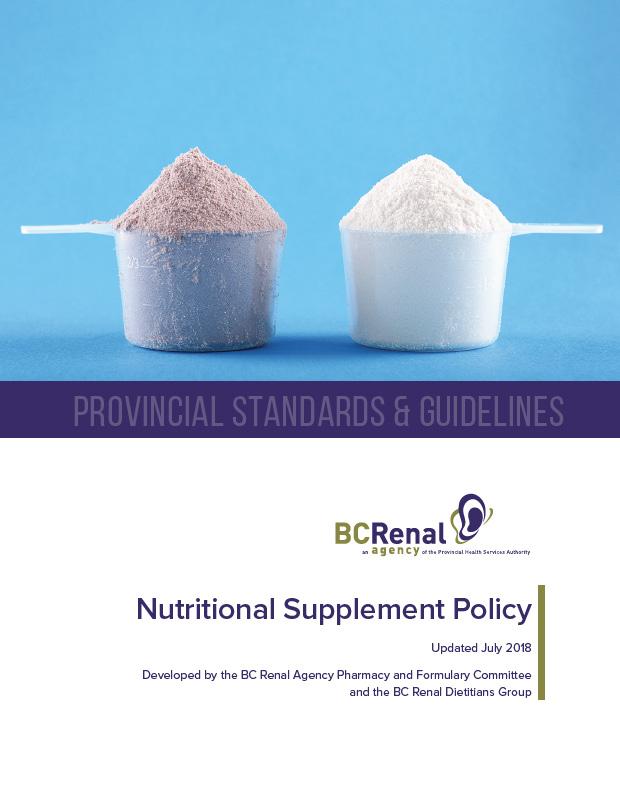
Determines which medications are essential in the care and treatment of patients with kidney disease and how they should be funded Oversees four formularies, and collaborates with more than 30 community pharmacy partners
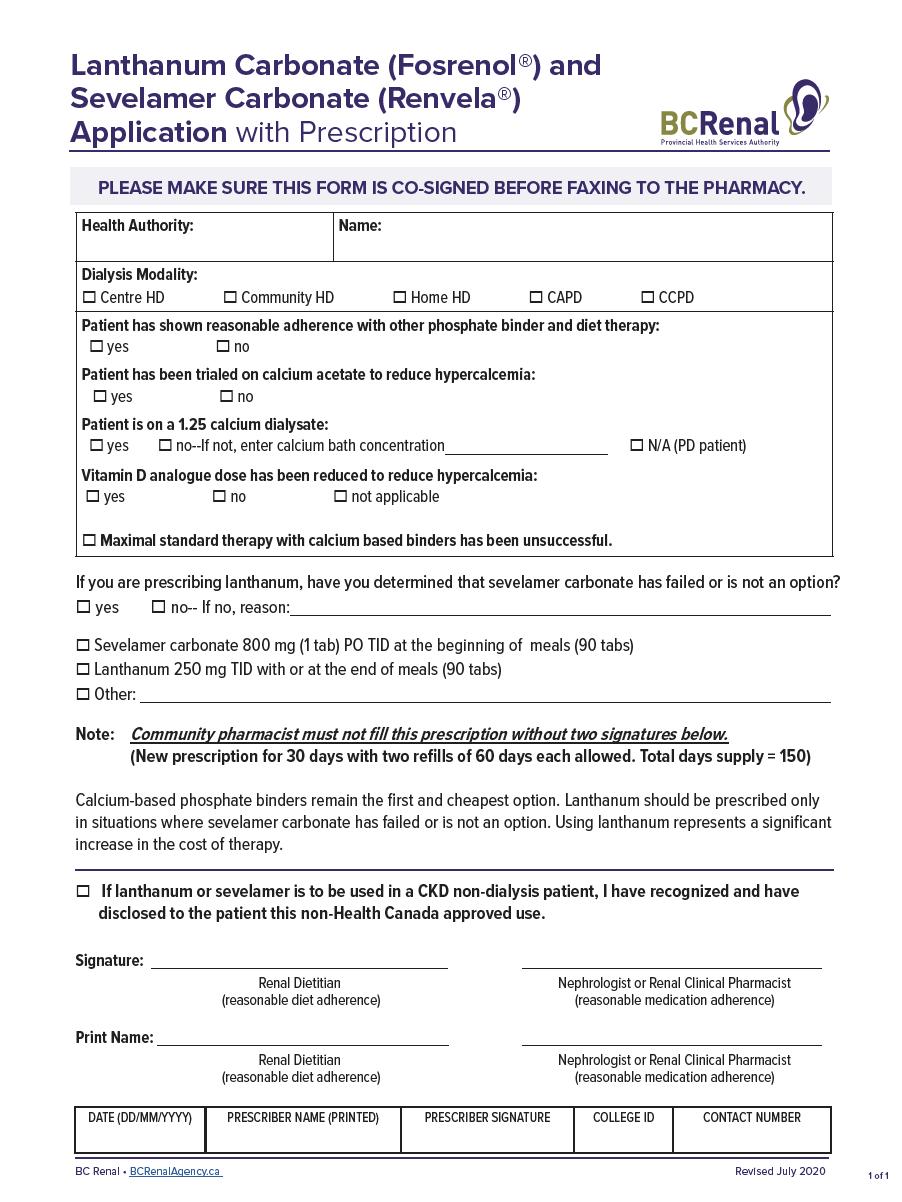
Web info & resources: BCRenal.ca ⊲ Health Professionals ⊲ Clinical Resources ⊲ Pharmacy & Formulary BCRenal.ca ⊲ Health Info ⊲ Managing My Care ⊲ Medication BCRenal.ca ⊲ Health Info ⊲ Managing My Care ⊲ Polycystic Kidney Disease - Tolvaptan






